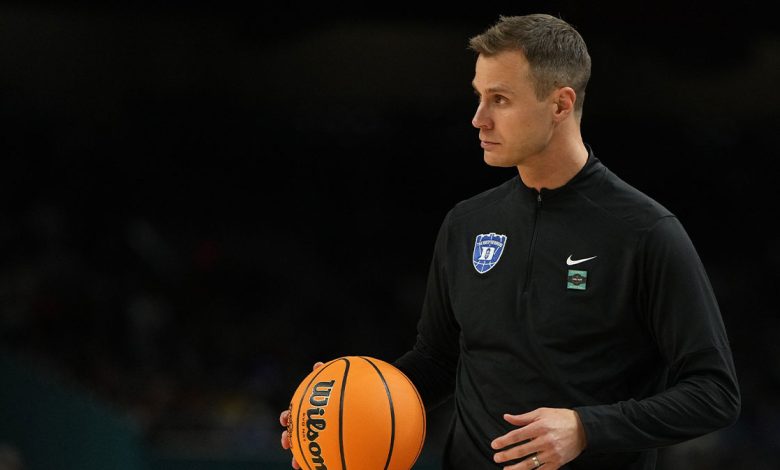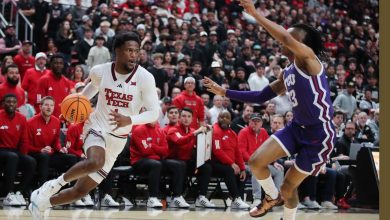Duke Blue Devils bid an emotional farewell to Coach Will Stephens after 27 remarkable seasons of dedication and leadership.

In the world of collegiate athletics, where coaches and staff often come and go with the seasons, few figures manage to leave behind a legacy that spans generations. Will Stephens is one of those rare individuals. After 27 seasons of unwavering dedication to the Duke Blue Devils, Stephens has announced his retirement as the Executive Director of Sports Performance, marking the end of an extraordinary era in the program’s storied history.
A 27-Year Journey Rooted in Discipline and Excellence
Will Stephens joined Duke University in 1998, taking on the responsibility of shaping the physical and mental fortitude of athletes across the basketball program. More than just a strength coach, Stephens quickly became an integral part of the Duke athletic culture, bridging the gap between athleticism, discipline, and mentorship. His philosophy emphasized not only physical development but also the cultivation of leadership, resilience, and personal responsibility—qualities that would go on to define many Duke athletes during and beyond their college careers.
His own background laid a strong foundation for the type of leader he would become. Before arriving at Duke, Stephens served in law enforcement and was an accomplished powerlifter. Between 1991 and 1993, he claimed three State Drug-Free Powerlifting Championships and held the state deadlift record at 661 pounds. In 1994, he won a gold medal at the World Championships for Law Enforcement—an achievement that underscored his discipline and physical expertise. These experiences translated naturally into his work with student-athletes, many of whom would credit him for helping unlock their full potential.
Behind the Scenes of Duke Basketball’s Golden Years
While head coaches and star players often capture headlines, the success of a college basketball dynasty like Duke is also built on unsung heroes like Stephens. Over his 27 seasons, he worked with five Duke Final Four teams and two national championship squads, supporting athletes through countless hours of grueling training, injury recovery, and peak performance preparation.
Stephens helped usher in a culture of elite performance at Duke, overseeing strength and conditioning programs that led to 43 top-10 finishes in the NBA Combine tests. Names like Jayson Tatum, Zion Williamson, RJ Barrett, and Paolo Banchero have passed through his weight room and conditioning programs. Each of them praised Stephens not only for building their physical endurance but also for helping them mentally prepare for the demands of professional basketball.
Yet his impact wasn’t reserved for the top draft picks. Players like Marshall Plumlee and Nick Horvath underwent significant transformations under his care, gaining strength, confidence, and grit that defined their time at Duke. Horvath in particular went from being a lean perimeter shooter to a dominant post player, largely thanks to the personalized training and encouragement he received from Stephens.
A Coach, Mentor, and Father Figure
Will Stephens’ presence in the Duke basketball program extended far beyond his job title. Many former players describe him as a father figure—someone who always had time to talk, advise, or simply listen.
“Coach Stephens taught me more than just lifting weights,” one former player shared. “He taught me how to be a man—how to show up with discipline, how to recover from failure, and how to lead with humility.”
For 27 years, Stephens was the constant in a program that saw players come and go, coaches retire and move on, and trends in basketball change dramatically. Throughout it all, he remained steady and focused on the core mission: helping Duke athletes become the best versions of themselves.
Head Coach Jon Scheyer, who took over from legendary coach Mike Krzyzewski in 2021, echoed those sentiments in a heartfelt statement: “Will has been the foundation of our performance program. His impact is immeasurable. He’s helped shape some of the greatest players and people to come through our university. I’m honored to have worked alongside him.”
Even Coach K, no longer at the helm, shared his appreciation: “Will is a legend in his own right. His work ethic, care for the athletes, and professionalism were unmatched. Duke owes him a great deal.”
Saying Goodbye
The announcement of Stephens’ retirement was emotional for everyone connected to the Duke program. Social media lit up with tributes from past and current players, assistant coaches, alumni, and fans. Many posted photos of early morning training sessions, personal thank-you messages, and reflections on the behind-the-scenes role Stephens played in Duke’s basketball success.
In a brief statement, Stephens shared his own thoughts on leaving:
“It has been the honor of a lifetime to serve this program and work with these extraordinary young men and women. I’ve seen them arrive as kids and leave as champions—on and off the court. I’ll always be a Blue Devil, but now it’s time for me to focus on my family and a new chapter.”
An official retirement celebration is being planned at Cameron Indoor Stadium later in the year, where fans, alumni, and former players are expected to gather to honor his contributions.
Filling Big Shoes
Replacing a legend like Will Stephens is no easy task. His decades of experience, institutional knowledge, and deep relationships with players made him a uniquely valuable member of the Duke athletic staff. But as Stephens steps away, Duke’s leadership has made clear that they are committed to continuing the legacy he helped build.
Coach Scheyer is reportedly involved in the process of selecting a successor who will not only have the technical qualifications but will also embody the Duke culture of excellence and personal integrity. The university is also exploring opportunities to honor Stephens with a permanent fixture in the training facility, potentially naming a section of the weight room after him.
Legacy Beyond the Court
Stephens’ impact also extended to the broader campus community. He was a frequent speaker at Duke freshman orientation events, where he talked about mental toughness, accountability, and how students could develop healthy habits during their college years. He also worked with student trainers and interns, mentoring the next generation of sports performance professionals.
Over the years, Stephens earned a reputation for being a humble leader—never seeking the spotlight, but always putting the athletes first. That humility and consistency left a lasting impression, not only on players but also on his colleagues and peers in the strength and conditioning community nationwide.
His approach was holistic: strength training, recovery, nutrition, and mental conditioning were all components of his comprehensive strategy. Under his direction, Duke’s performance program became one of the most respected in college athletics.
Looking to the Future
The future of Duke basketball remains bright, but the absence of Will Stephens will surely be felt. As the program continues to attract top-tier talent—like Cooper Flagg, Cameron Boozer, and other rising stars—the groundwork laid by Stephens will continue to influence how players are developed.
What Stephens built wasn’t just a training program—it was a standard, a culture, and a family. His voice, though quieter than those of game-day announcers or ESPN analysts, helped shape championship teams and NBA legends.
In an age of constant change and short-term thinking, Stephens’ 27-year career at one institution stands as a testament to loyalty, consistency, and passion. His departure is not only the end of an era, but also a call to uphold the values he championed: hard work, discipline, and heart.
The Duke Blue Devils have had many legendary figures pass through Cameron Indoor Stadium. Coaches, players, and administrators have come and gone—but few have done so with the quiet strength and profound impact of Will Stephens.
His legacy will live on in every Duke player who digs deeper, trains harder, and leads with purpose. As the Blue Devils prepare for the future, they do so with gratitude for a man who helped define the past. Thank you, Coach Stephens—for your service, your leadership, and your heart.









